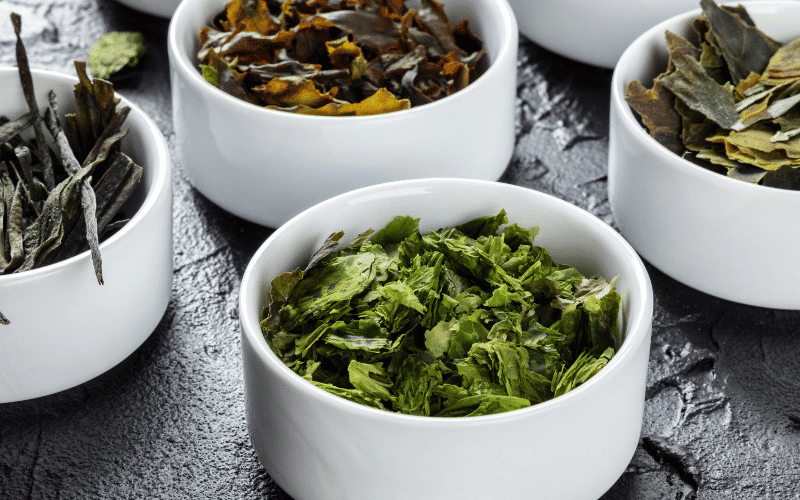9. The Role of Sea Vegetables

Our ninth fact brings us to the ocean’s bounty – sea vegetables. Sea vegetables, also known as seaweed, are a potent source of iodine. Types of seaweed include nori, kombu, wakame, and dulse, each with its unique nutrient profile and iodine content.
Seaweeds have been part of the human diet for centuries, particularly in Asian cuisines. They are incredibly versatile and can be used in a variety of dishes – from sushi rolls and salads to soups and stir-fries. Incorporating sea vegetables into your diet can significantly boost your iodine intake, helping to prevent deficiency.
However, there’s a flip side to the iodine-rich nature of sea vegetables. They can sometimes provide too much iodine, especially certain types like kelp. Too much iodine, as we’ve previously discussed, can also disrupt thyroid function, leading to conditions like hyperthyroidism.
Hence, it’s essential to consume sea vegetables in moderation. Diversifying your sources of iodine is also a good idea. While sea vegetables can be a significant source, incorporating other iodine-rich foods and considering a supplement (if necessary) can help ensure you’re getting the right amount, not too little and not too much. (9)